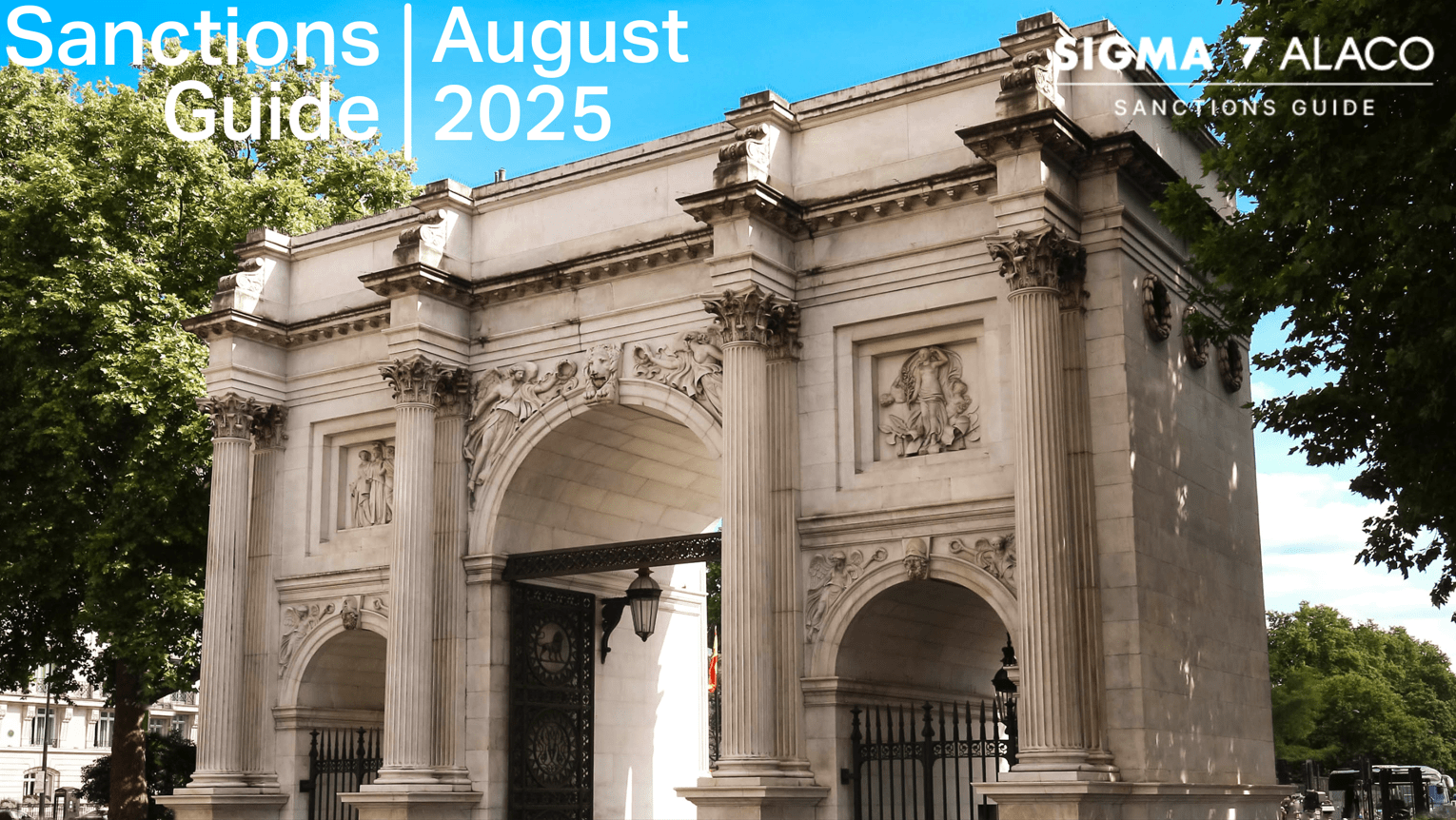Throughout August, the US intensified its counter-narcotics efforts, targeting trafficking networks across Mexico and Costa Rica. These actions were undertaken within the framework of President Trump’s directive to completely eliminate cartels that threaten US interests by enabling the smuggling of opioids and other illegal drugs into the country. Two major cartels, Carteles Unidos and Los Viagros, were designated under OFAC’s counter narcotics regime, with the former already being designated as a foreign terrorist organisation since February 2025.
UK and US sanctions regimes continued to target Iran and industries of strategic importance to the regime, including technology procurement and oil transportation, with dozens of new designations this month spanning individual actors, entities, and vessels. Notably, registrations for Panamanian vessels sanctioned by OFAC were cancelled by Panama’s Maritime Authority.
On the enforcement and regulatory front, OFAC issued general licenses around this month’s summit in Alaska between Trump and Putin, as well as extending allowances for certain diamond imports from Russia. Also in the US, August saw a series of arrests and convictions related to violations of export controls and sanctions, including weapons exports to North Korea and Russia, technology transfers to China, and narcotics trafficking. The UK issued its first suspended sentence related to counter terrorism sanctions violations.
Counter Narcotics
- The US has continued to take action against narcotics trafficking, implementing President Trump’s directive to completely eliminate cartels and transnational criminal organisations that threaten US nationals. Two Mexican cartels, Carteles Unidos and Los Viagras, and seven affiliated people linked to terrorism, drug trafficking, and extortion in Mexico’s agricultural sector were sanctioned by OFAC. Related to the designations, the US Department of Justice announced the charging of Farias Alvarez, Barragan Chavez, Fernandez Magallon, Orozco Cabadas and Sierra Santana. The charges relate to allegedly decades-long conspiracies to manufacture and distribute controlled substances, including methamphetamine, cocaine, and fentanyl, to be unlawfully imported into the US. In addition, Farias Alvarez, Fernandez Magallon and Barragan Chavez have been charged with firearms charges.
- Separately, four Costa Rican-based nationals and two Costa Rican-based entities were added to the SDN list for their activities in narcotics trafficking, two of whom were arrested in Costa Rica in June and are awaiting extradition to the US.
- OFAC further sanctioned one Mexican individual and 13 Mexican companies linked to timeshare fraud led by Cartel de Jalisco Nueva Generacion, which has been a designated a Foreign Terrorist Organisation since February 2025. Those targeted include Michael Ibarra Diaz Jr, who is alleged to play a role in managing fraudulent timeshares for the CJNG in Puerto Vallarta. This is in addition to designations targeting four high-ranking members of Mexico’s Cartel del Noreste, including its second-in-command Abdon Federico Rodriguez Garcia and rapper Ricardo Hernandez Medrano whose concerts and events are reported to be used to launder money on the cartel’s behalf.
Other Designations
- Iran continues to be targeted by US and UK sanctions. At the beginning of the month, OFAC sanctioned five entities and one individual for their procurement of technology in support of the designated Iran Aircraft Manufacturing Industrial Company. OFAC additionally sanctioned seven Iranian nationals and 11 Iranian entities reported to have facilitated sanctions evasion and political oppression. In the UK, meanwhile, one person and four entities were designated for their involvement in hostile activity by the Iranian government. The Panamanian Maritime Authority cancelled the registrations of 17 vessels sanctioned by the US in July in light of allegations of transporting Iranian oil. At the end of the month, OFAC sanctioned a further eight crude oil tankers, one individual, and 13 entities also involved in the transportation of Iranian oil and petroleum products.
- OFAC, the US Department of State, and the US Department of Justice took coordinated action to sanction and seize the assets of entities and individuals affiliated with cryptocurrency network Garantex and its Kyrgyzstan-based successor Grinex. Registered in Russia and Estonia, Garantex is alleged to have facilitated ransomware actors and cybercriminals by processing over $100 million in transactions linked to illicit activities since 2019. Separately, the US Department of State also revoked visas and imposed visa restrictions on multiple Brazilian government officials and former Pan American Health Organisation officials who are alleged to maintain ties to a Cuban medical worker programme that is reportedly being exploited by the Cuban government. These include officials across Africa, Cuba, and Grenada, many of whom have not been named.
- OFAC additionally sanctioned four ICC judges and prosecutors including former US sanctions ombudsperson Kimberley Prost, who was designated for ruling to authorise the ICC’s investigation into US personnel in Afghanistan. A second ICC judge, Nicolas Yann Guillou, was designated for ruling to authorise the ICC’s issuance of arrest warrants for Israeli Prime Minister Benjamin Netanyahu and former Minister of Defence Yoav Gallant. Two deputy prosecutors, Nazhat Shameem Khan and Mame Mandiaye Niang, were designated for continuing to support illegitimate ICC actions against Israel.
- With regards to delisting applications, the EU notably rejected the applications of Russian billionaire Gennady Timchenko and his wife Elena. Gennady failed to convince the EU’s General Court that he has distanced himself from Bank Rossiya, while Elena unsuccessfully challenged her association with her husband. The EU also rejected delisting applications for two Tunisian nationals, respectively the brother and daughter of Tunisia’s First Lady, who are alleged to have been involved in or associated with the misappropriation of public funds. Alexander Pumpyansky, whose father is an influential businessman operating in Russia, was also denied interim relief from EU sanctions; his delisting application will nonetheless continue.
- The UK followed in the footsteps of the EU in annulling the listing of DRC official Alex Kande Mupompa, who was first designated in 2020 for alleged violations of human rights. Mupompa was delisted by the EU in July in light of a change in regime in the DRC, Mupompa’s lack of executive power in government, and his distancing from the former president.
Regulatory Updates
- Prior to the August 15th meeting between Putin and Trump in Alaska, OFAC issued a general licence authorising transactions necessary for the summit that would otherwise have been prohibited, active between 13th and 20th Another Russia-related general licence was implemented to authorise transactions related to imports of certain diamonds and a licence authorising imports of certain non-industrial diamonds to the US from Russia was extended.
- The US further enacted new Export Control legislation requiring the US Bureau of Industry and Security to report to Congress annually on licensing, to include details such as the name of the entity submitting the application, where the item is being exported, the decision with respect to the license application or authorization, and information on related enforcement activities to ensure compliance with US export controls.
- Finally, continuing its commitment to winding down Syrian sanctions, OFAC published a final rule revoking Syrian sanctions, although sanctions on members of the former Assad regime remain in force.
Enforcement
- In Florida, arms dealer Maxim Larin was arrested for allegedly exporting weapons parts and accessories to Kazakhstan in breach of export controls. In Texas, an active-duty soldier was arrested on charges of attempted transmission of national defence information and attempted export of controlled technical data, in exchange for which the officer attempted to obtain Russian citizenship. Two Chinese nationals were also arrested in Los Angeles due to allegations they knowingly exported microchips to China to be used in AI applications in breach of export controls.
- In California, a District Court sentenced Chinese national Wen Sheunghua to eight years’ imprisonment for illegally exporting firearms, ammunition, and other military-grade items to North Korea, for which he was paid USD 2 million by the North Korean government. The same district court also sentenced music executive José Ángel Del Villar to four years’ imprisonment for conspiring to violate counter narcotics sanctions regulations; Del Villar and his company were fined USD 2 million and USD 1.8 million respectively.
- Meanwhile in New Jersey, US-Russian dual national Vadim Yermolenko was sentenced for unlawfully purchasing and exporting electronic components to Russia for the development or nuclear and military applications. The Department of Justice additionally seized USD 2.8 million in cryptocurrency, USD 700,000 in cash, and a luxury vehicle, all of which belong to Ianis Aleksandrovich Antropenko, who was charged in Texas for conspiring to commit computer fraud and money laundering.
- In relation to global human rights and anti-corruption sanctions, OFAC indicted Haitian national Jimmy Cherizier, also known as Barbecue, and US national Bazile Richardson, also known as Fred Lion and Leo Danger, with leading a conspiracy to transfer funds from the US to Cherizier to fund his gang activities in Haiti. Richardson was arrested in Texas in July 2025 while Cherizier remains a fugitive believed to be in Haiti.
- In its first sentence for counter terrorism sanctions, the UK issued a suspended sentence to UK charity director Aozma Sultana, who was convicted for breaching sanctions in June 2025 as a result of financially supporting Gaza Now, a news agency accused of promoting Hamas and the Palestinian Islamic Jihad.


